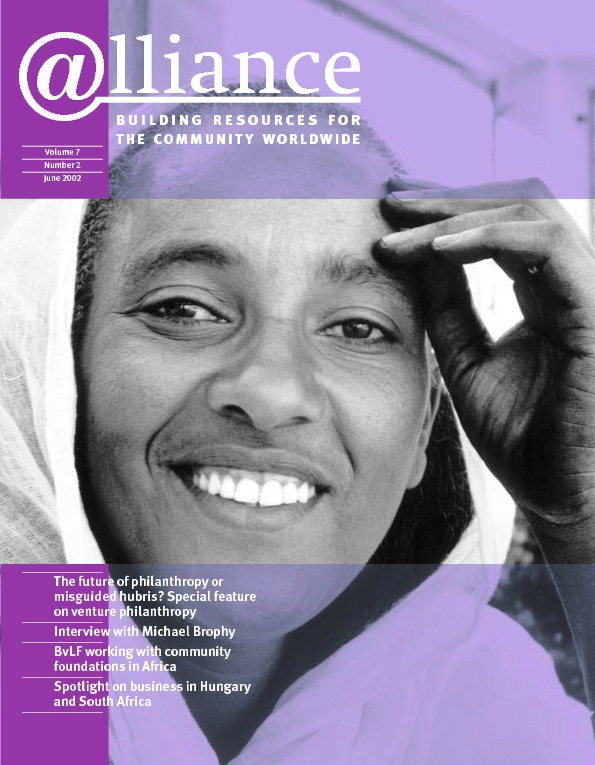The Regional Environmental Center for Central and Eastern Europe (REC) has been supporting environmental NGOs in the region for the past 12 years. This support is mostly delivered in the form of traditional project grants; however, REC is increasingly helping to strengthen NGOs themselves. In the last few years it has tried to integrate a venture philanthropy (VP) approach into its grant programmes. This article looks at why REC has done this and whether VP is likely to prove a valuable addition to the grantmaker’s toolkit in CEE countries.[1]
REC has been working with the partners of the Sustainable NGO Financing Project (SNFP)[2] to integrate this new approach. With the guidance of NESsT, REC has implemented a pilot project[3] to provide capacity-building and financial support to NGOs to develop ‘self-financing’ initiatives as a means of helping them diversify their overall financing base.
This pilot represented a definitive departure from REC’s traditional grantmaking activities. It involved identifying NGO business opportunities, assessing them through a pre-feasibility and feasibility study stage, providing expert advice and support (through local business advisers and trainers), preparing and funding business planning and, finally, if applicable, supplying financial and expert support for the implementation of the venture. While REC has significant experience in organizing traditional calls for proposals, assessing project proposals, awarding grants, etc, introducing a VP approach presented a new set of challenges.
Potential for VP in the region
The pilot project clearly illustrated that there is interest in self-financing – and in the type of support we were offering — among NGOs in the region. Some 65 NGOs from the four target countries applied to be part of the initiative, and 12 developed full feasibility studies. In REC’s experience, that is a surprisingly robust response to such a new call. Furthermore, the seven NGOs that subsequently received venture planning grants to develop their feasibility studies into full business plans indicated that the capacity-building and training component of the pilot was valuable regardless of whether or not they went on to receive financial support.
However, there are a number of challenges to implementing the VP approach in Central and Eastern Europe:
Limited financing The amount and breadth of finance available for NGO self-financing ventures is limited. A greater variety of financial instruments (loans, start-up, etc) and support from other donors for grantees’ self-financing initiatives will be needed to overcome this deficit. Other financial institutions will also need to be tapped for additional resources.
Uncertain legal and fiscal environment In most CEE countries the law relating to NGO economic activities is still a grey area or unfavourable to NGOs.
Insufficient expertise Finally, the various actors involved in the pilot all faced limitations in their expertise. NGO leaders need more business and management training; business advisers need training to understand NGO issues; programme officers in grantmaking organizations need more expertise in assessing the overall capacity of NGOs and feasibility of self-financing ventures; NGO support organizations lack the business expertise to assist NGOs with the latter stages of enterprise development.
Local grantmaking organizations wanting to integrate a VP approach into an ongoing NGO support programme will clearly need to cooperate with organizations that possess specific expertise beyond that which most grantmakers themselves possess.
1 A new publication, Planning for Sustainability, relates how and why REC and the SNFP partners have tried to introduce a VP approach. For a copy of this and other REC publications contact info@rec.org or go to REC’s website at http://www.rec.org/REC/Publications/publications.html
2 The SNFP partner organizations are: Centre for Non-Profit Management Slovenia; Civil Society Development Foundation, Hungary; Lotos, Czech Republic; NESsT , Hungary; Partners for Democratic Change, Slovakia.
3 Funded through the Phare Partnership Programme.
Robert Atkinson is Head of NGO Support and Capacity Building Programmes at the REC. He can be contacted at ratkinson@rec.org
For more information
http://www.rec.org





Comments (0)